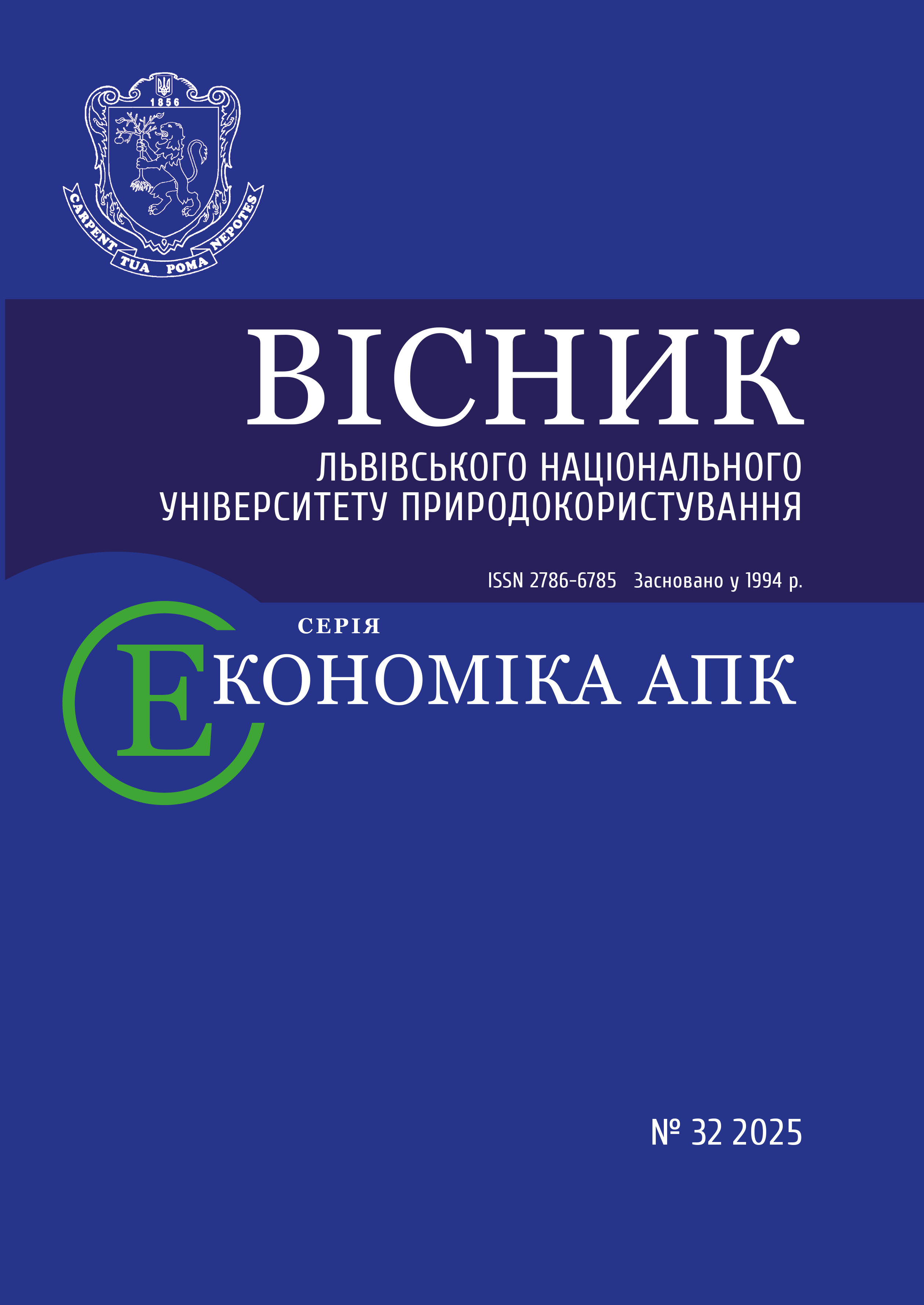PLANNING AND ORGANISING MANAGERIAL DECISION-MAKING BY USING CREATIVE MODELS AND METHODS IN THE ORGANISATION
DOI:
https://doi.org/10.31734/economics2025.32.140Keywords:
decision, creative management decision, decision planning, decision structure, factors influencing decisions, efficiency, decision-making dynamicsAbstract
Management can be viewed as a sequential process that involves collecting information, developing solutions, and organising their implementation. This process highlights the crucial role of management decisions in the activities of managers. The effectiveness of an enterprise's operations largely depends on the quality of these decisions.
The issue of decision-making is fundamentally important as it encompasses all aspects of human activity. This requires a high level of competence from managers and specialists in the field of management, who must possess both theoretical knowledge and practical skills for developing and implementing effective solutions.
When making a creative management decision, it is essential to take into account all available information. However, external factors and elements of uncertainty can complicate the pursuit of an ideal outcome. Therefore, after implementing a decision, it is vital to monitor its results and analyse its effectiveness.
Decision-making is an integral part of every management function. Managers continuously set goals, make non-standard decisions, and organise their implementation. Understanding the essence of this process is essential for anyone seeking success in management.
The effectiveness of management decisions depends on their preparation, justification, and competent execution. Creative decisions serve as important tools for achieving strategic goals. The development of these decisions must adhere to specific requirements: the implementation methods should be practical, economically feasible, and aligned with the content of the decision as well as the real conditions in which it will be executed.
The essence of a creative management decision should be clearly defined, considering its significance, moral obligations, and professional standards. It is necessary to analyse the relationships between all elements of the situation to make a balanced and justified decision.
To achieve effective management, it is imperative to make informed and creative decisions. When making management decisions, a manager must carefully consider the external environment of the organisation, as it significantly influences the organisation's market position and overall success.
In complex situations, the quality of the decision-making process can be enhanced by employing a scientific approach, modelling techniques, and quantitative analysis methods.
References
Brych V. Ya., Korman M. M. Creative management: textbook. Ternopil: TNEU, 2018. 220 p.
Ivanova V. V. Planning and control at the enterprise: textbook. Business Economics. Management. 2023. 443 p.
Petrunia Yu. Ye., Hovorukha V. B., Litovchenko B. V. Making management decisions: textbook / ed. Yu. Ye. Petrunia. 2nd ed. Kyiv: Center for Educational Literature, 2011. 216 p.
Shkilniak M. M., Ovsianiuk-Berdadina O. F., Krysko Zh. L., Demkiv I. O. Management: textbook. Ternopil: ZUNU, 2022. 258 p.
Svydruk I. I. Creative management: textbook. Kyiv: Center for Educational Literature, 2024. 240 p.


